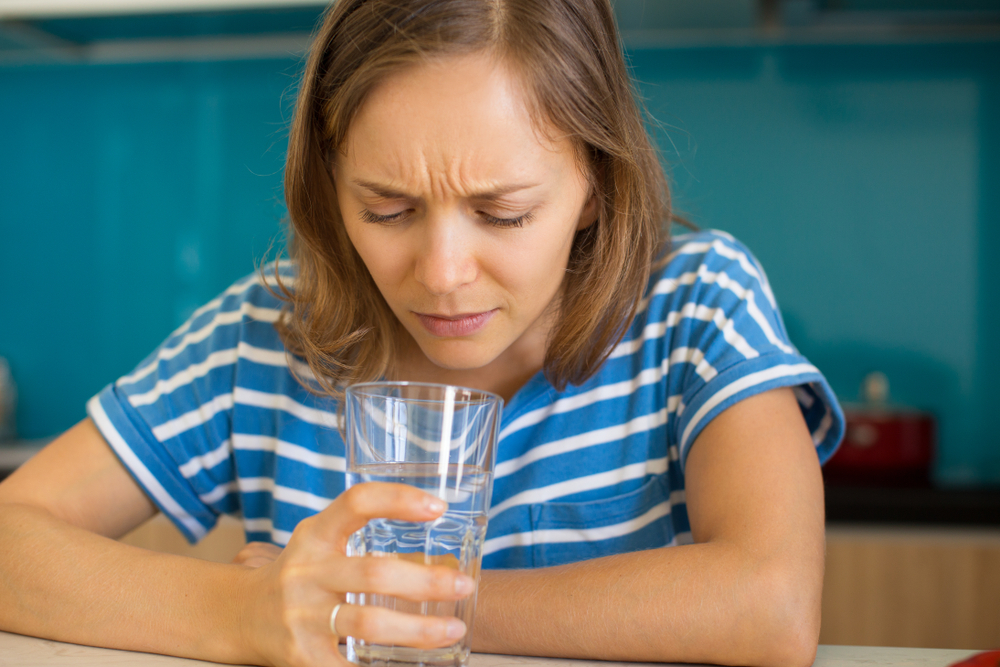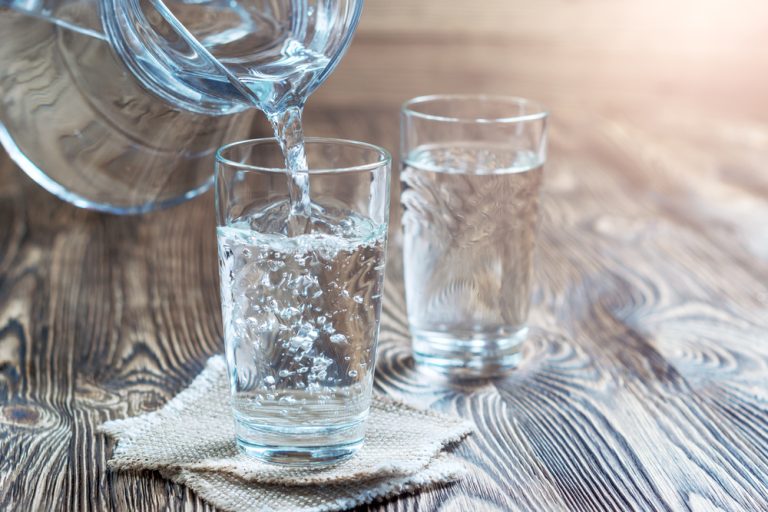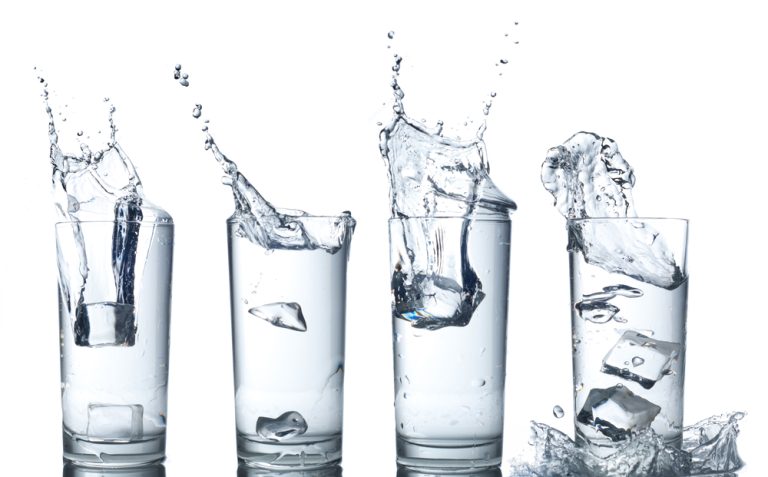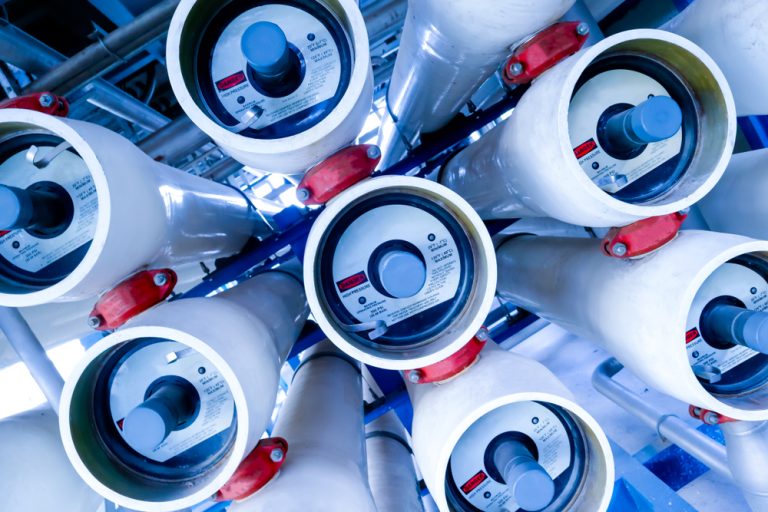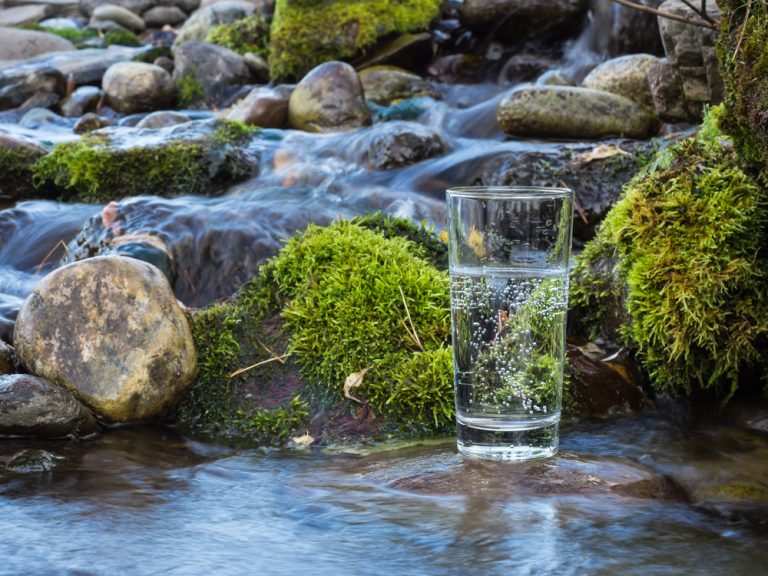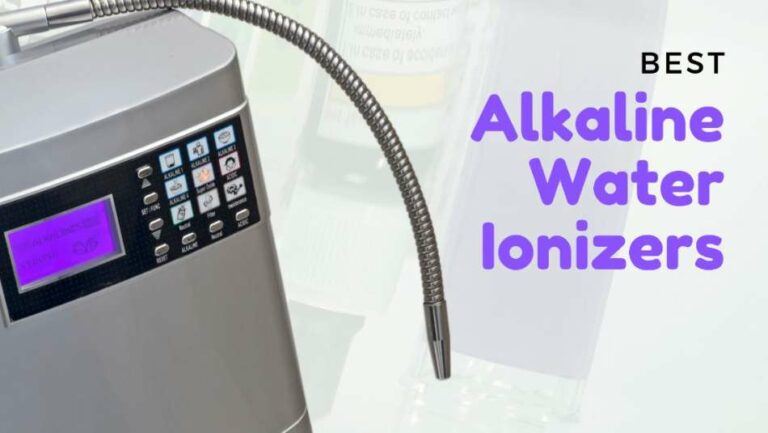Does Spring Water Have Chlorine?
Spring water is suitable for drinking because of its healthy mineral content. Have you ever wondered how spring water is processed and if it has chlorine though? Worry no more because we’re here to help.
Spring water does contain chlorine for about 0.3 – 1.0 milligrams per liter. Spring water has been thoroughly processed to pass the National Primary Drinking Water Regulations. One of the quality standards includes microbiology tests. To be able to pass the microbiology test called Total Coliform and E. Coli & Fecal Coliform, spring water must undergo a disinfection process by adding some chlorine.
What Is Spring Water?
Spring water comes from underground water tunnels called aquifers. During rainfalls, rainwater is filtered underground by the clay and rock bed formation. These naturally filtered waters flow out through the underground aquifers and then surface to a nearby place called a spring.
How To Process Spring Water
Spring water is then extracted from the springs and processed further to be more drinkable. It undergoes a filtration process, coagulation & flocculation, clarification or sedimentation, and a disinfection process. After these processes, it is carefully examined by the quality control and assurance department.
Spring water must pass the National Primary Drinking Water Regulations before distributing it to consumers.
National Primary Drinking Water Regulations
The Food And Drug Administration and the Environmental Protection Agency are governing agencies that set the standards for drinking water. The total dissolved solids have been limited to 600 milligrams per liter or parts per million (ppm). The pH level must be between 6.5 – 8.5. The total hardness concentration should be less than 200 ppm. Of course, it should be free from any water contaminants like heavy metals, pollutants, and disease-causing pathogens. To kill these disease-causing pathogens, disinfection using chlorine is applied with a minimum concentration between 0.3 – 1.0 ppm.
Microbiology Tests
To determine the effectiveness of chlorine during its application, microbiology tests are conducted on spring water. These tests are called Total Coliform and E.Coli & Fecal Coliform. In case one of these tests fails, it means the disinfection process is either ineffective or the chlorine concentration is insufficient. Therefore, immediate action must be implemented to ensure the correct chlorine level is reached.
Is It Safe To Drink Spring Water With Chlorine?
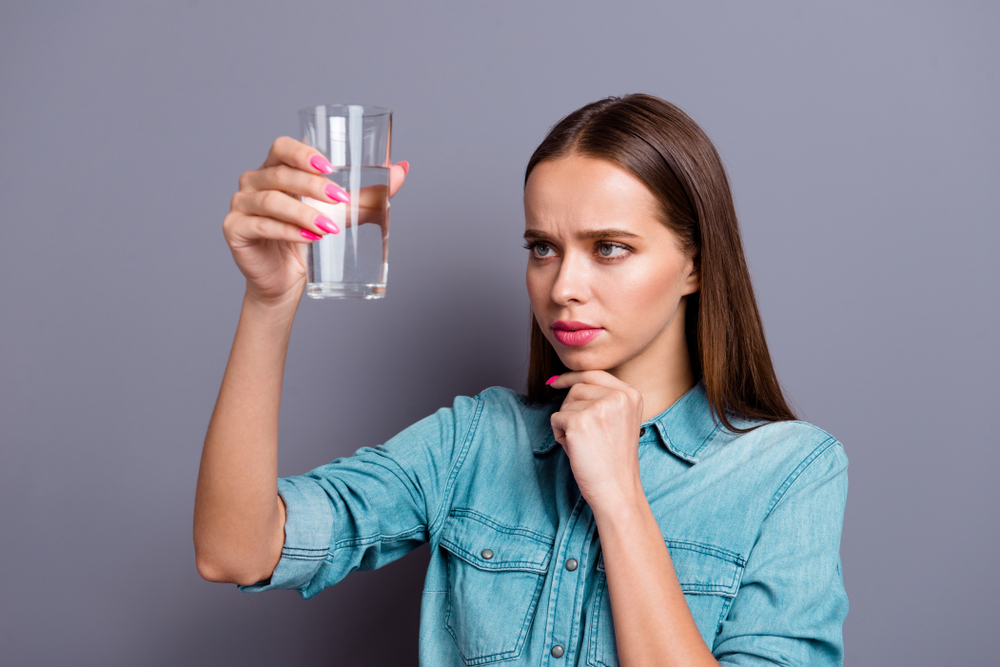
Yes, it is very safe to drink spring water with chlorine if the chlorine concentration is within the set standards between 0.3 – 1.0 mg/l. A typical human body can take chlorine levels up to 1.5 mg/l. Exceeding these values is not permitted and is considered hazardous to human health, for it may cause damage to internal organs and the worst-case scenario is death.
What Would Happen If Chlorine Is Removed From Spring Water?
Chlorine not only kills bacteria and pathogens, but it also prevents the formation of these contaminants in spring water. It serves as a protective shield from disease-causing pathogens.
Spring water can be contaminated in many ways too. This can happen through the pipelines, inside the water containers, or in open areas. Just to make sure you are drinking clean & safe water, it is advisable to maintain the chlorine level of spring water.
Other Ways To Disinfect Water
There are also other ways of disinfecting water without the use of chlorine. Some industries are now using them in their water filtration systems. Disease-causing pathogens can also be killed by ultraviolet light and by means of injecting Ozone into the water. Even the commercial sectors and common households are now using UV light as a disinfectant in their drinking water.
Before taking on any kind of water disinfection yourself, we recommend doing proper research though as well as consulting with a professional.
In Conclusion: Does Spring Water Have Chlorine?
So, as it turns out, spring water does have chlorine. And there’s a good reason for it too.
So, let us know what you think about chlorine in spring water in the comments below. We’d love to hear your thoughts!

